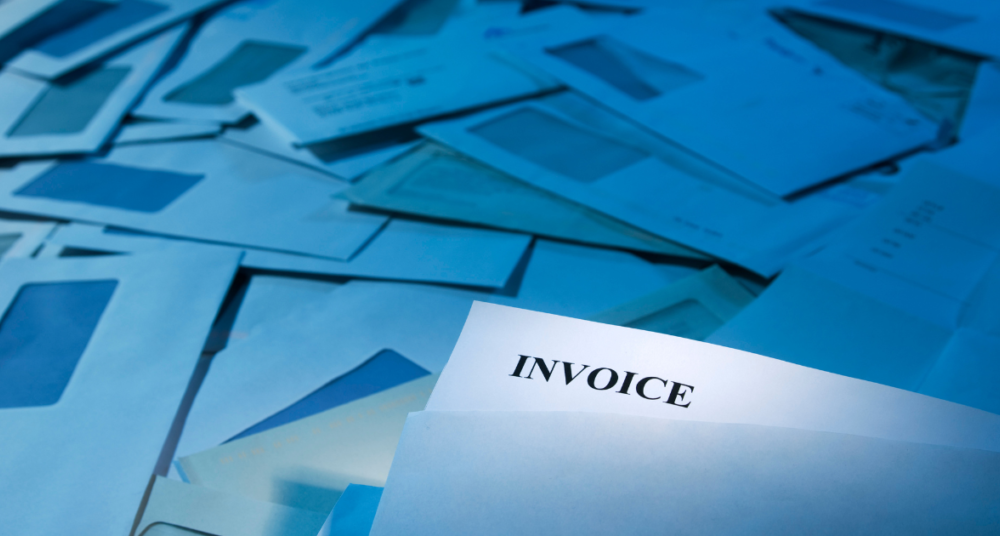Title
7 Things You Should Know About France's E-Invoicing Mandate
Blog Image [Deprecated, to be removed]

In the past few years, France has been leading the charge in digital transformation efforts around the globe, with a focus on e-invoicing. The forced widespread adoption of e-invoicing is leaving companies with counterparts in France scrambling. Next year, the e-invoicing mandate will go into effect, requiring electronic invoicing for B2B transactions. In this blog post, we’ll explore the most asked questions regarding the mandate, including what it means for organizations and the benefits e-invoicing can have.
1. What does France's 2023 e-invoicing mandate entail? How did it come about?
The mandate requires businesses to submit all domestic B2B invoices to the French Tax authority electronically via Chorus Pro or use a privately registered third party like Esker (called Partner Dematerialization Platform or PDP).
This mandate is not solely about delivering invoices electronically, it is also a requirement to provide payment data and e-reporting data (international B2B and B2C transactions) to the government. In plain English, it is a condensed file with invoice header data/certain fields that the tax authority requires.
This applies to companies that have a registered business in France. If you don’t have a subsidiary in France, you will not be impacted by this requirement at this time. If the French entity is sending or receiving invoices from other countries that must be reported.
The mandate will be phased in gradually. Businesses will be required to issue e-invoices according to the following schedule:
- July 1, 2024: large companies
- January 1, 2025: mid-sized companies
- January 1, 2026: smaller companies
All business entities will be required to accept electronic invoices starting July 1, 2024, regardless of their size. The French government introduced this mandate to fight VAT fraud, strengthen competitiveness, improve company efficiency and facilitate VAT tax returns.
2. What new standards are being put in place that were not specified before now?
Today, invoicing in France is 80% done via paper mail, but that standard is going to change from a paper-based economy to an electronic one. Companies will need to use a format meeting the European standard (EN16931) to submit an invoice. Three formats have been selected by the tax authority: Factur-X (PDF with XML embedded in the PDF), UBL, UNCEFACT CII — think of the last two as similar to EDI schemas where there is no image just raw text data. Paper invoices or simple PDF invoices will no longer be accepted.
3. How will this mandate affect organizations in France? How will it affect organizations outside of France hoping to do business in the country?
For French-registered companies, the mandate will require changes to their invoicing and reporting processes. Here are some examples of impacts on organizations:
- Shift towards real-time or near-real-time invoicing and reporting, which may require changes to their internal processes and systems
- Choose between the Chorus Pro platform or a registered third-party provider (connected to Chorus Pro)
- New costs for companies, as they may need to invest in new software, or personnel to comply with the mandate. However, the shift towards electronic invoicing may result in long-term cost savings for these organizations
- Impacts on ERP system change (e.g., support of mandatory fields, connected to their private registered third party)
- Training for users on these new tools and processes
- Collection of all mandatory information for e-invoicing and e-reporting that will be required by the tax authority.
Organizations outside of France are not impacted by the mandate if they have no VAT-registered company in France.
4. What do you see being the biggest challenge for organizations striving to achieve compliance? How can organizations address that challenge?
In France, or other countries following suit, moving to e-invoicing is no longer an option for businesses, it’s now an obligation. The growing number of governments and corporations adopting e-invoicing means that companies need to send e-invoices if they want to do business and get paid. However, the increasing number of rules, formats, platforms and certifications brings a lot of complexity to compliance. While it might be tempting to sit back and wait for deadlines to draw near, businesses must embrace the shift to e-invoicing or risk being left behind.
How to address this challenge?
Organizations should start by analyzing their existing systems and processes to identify invoice flows that need to be updated or changed. They should also consider working with software editors providing global e-invoicing and e-reporting solutions to comply with e-invoicing mandates worldwide, like Esker. Companies that rely on multiple local service providers to ensure e-invoice compliance in different countries find it difficult to uphold rigid local specifications and manage numerous providers. Working with one provider and one solution is the preferred way to go as it increased visibility on your global invoices, helps you anticipate new mandates in other countries, improves and streamlines your internal processes, and enhances user experience.
5. Based on conversations with Esker's customers, how has this mandate affected them?
The French e-invoicing mandate is quite complex, and customers are struggling to know how to meet these requirements. They need to choose their platform (between Chorus Pro or a private registered third party) to submit their invoices to the tax authority. They also need to make sure that their ERP systems (and all of their information system) are prepared for this change (e.g. support of mandatory fields, connected to their private registered third party). In addition, once they implemented this new platform in their information system, users will need to be well-trained on new processes and new tools. One of the first steps for companies is to know how to collect all mandatory information from their customers that will be required by the tax authority in an invoice. Customers are facing a lot of change as they need to learn the new system and understand how they are going to invoice and report going forward.
6. How is Esker supporting organizations looking to achieve compliance?
Esker helps drive companies’ transition from paper to electronic invoicing by automating the processing of 100% of your invoices via any media (paper, e-invoice, EDI, etc.) to ensure your needs of today and tomorrow.
Esker delivers and receives compliant customer and supplier e-invoices on a global scale, and is capable of processing different invoice formats, as well as communicating with different public administration platforms to send and receive e-invoices and provide visibility on invoice status.
Through its partnership with SOVOS TrustWeaver, a leading e-invoicing compliance expert, Esker helps businesses achieve global e-invoicing compliance in over 60 countries, as well as provides e-invoice archiving.
In France, more specifically, Esker will provide a global and compliant solution with e-invoicing and e-reporting regulations. Esker aims at becoming a registered e-invoicing and e-reporting partner of the French tax authorities, as a Partner Dematerialization Platform (PDP). Esker is participating in the public consultations led by the French Tax Administration to help companies digitize their transactions as of July 1, 2024.
7. Do you see France's mandate & related mandates in other countries as part of a larger, global shift to digitization? How will this trend affect regions that have not begun to prioritize digitization?
Yes, France's e-invoicing and e-reporting mandate, as well as related mandates in other countries, are part of a larger global shift towards digitization.
Latin America was the first to enforce the use of e-invoicing in the late 2000s.
French B2G e-invoicing mandate was part of a European Directive on e-invoicing and public procurement [2014/55/EU] transposed by all EU member states. Many governments introduced legislation requiring vendors to send e-invoices to all public administrations.
Italy has gone even further to become the first European member state to mandate B2B and B2C e-invoicing for Italian businesses. Others seem willing to follow this lead: France, Spain, Belgium and Poland already announced a mandate for 2024. To harmonize invoicing and VAT reporting in the EU, the European Commission recently published a draft of measures to modernize the EU's Value-Added Tax (VAT) system and promote digitalization.
However, the increasing regulations bring a lot of complexity to compliance. Efforts have been made to standardize public procurement and simplify document exchanges between companies and public entities, notably with PEPPOL.
France’s e-invoicing mandate represents a significant shift towards a more digital and efficient way of conducting business. This adoption is expected to bring substantial benefits to both businesses and the environment, as it streamlines the invoicing process. While the mandate may come with some challenges, it also presents opportunities to improve business processes.
As we approach July 1, 2024, it’s important that companies start preparing to ensure a smooth transition. If you’re not sure where to start, reach out to us! By taking action now you can ensure compliance with the mandate and position your business for success and achieve true positive-sum growth.
Subscribe to new posts
